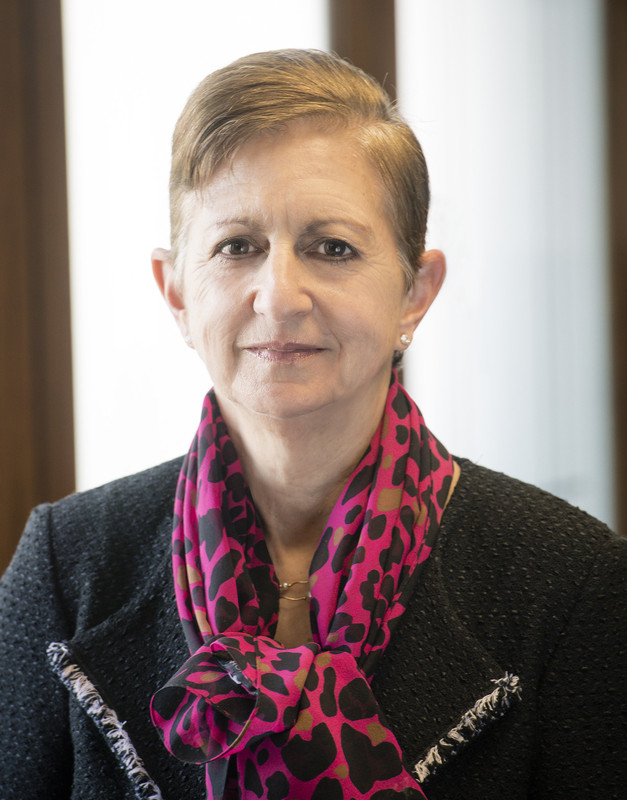 Tika Benveniste, Ph.D.One year ago, the course of research in the U.S. was changed indefinitely by the onset of COVID-19. And on March 25, 2020, the School of Medicine (SOM) and the Hugh Kaul Precision Medicine Institute (PMI) issued a request for applications (RFA) that would change the course of research at UAB.
Tika Benveniste, Ph.D.One year ago, the course of research in the U.S. was changed indefinitely by the onset of COVID-19. And on March 25, 2020, the School of Medicine (SOM) and the Hugh Kaul Precision Medicine Institute (PMI) issued a request for applications (RFA) that would change the course of research at UAB.
Calling on scientists of wide-ranging specialties, the RFA for the Urgent COVID-19 Clinical Research and Laboratory Research Fund asked interested applicants to immediately consider how they could contribute to treating a never-before-seen virus.
During a time of heightened uncertainty and fear, UAB authorized the Limited Business Model on March 15, 2020, which required most scientists to shut down their labs—some of which had decade’s worth of research ongoing. Nevertheless, research scientists sprang into action and looked for ways to use their expertise on COVID-19 discoveries.
Straightaway, applications responding to the RFA for Urgent COVID-19 dollars came flooding in, and within five days, 52 applications had been submitted.
Such high engagement with the RFA showcased UAB’s core values of excellence and integrity in real-time. While the world was facing a quickly moving but undefined future, UAB researchers were ready to selflessly serve humanity.
In the same way, the corporate communities of both Birmingham and Montgomery rallied around SOM's Urgent COVID-19 Clinical Research and Laboratory Research Fund.
In just 20 days, over $1.1 million was raised, accelerating the school's ability to invest in promising research which enhanced researchers' understanding of the virus and how to treat it.
Around 30 days later, 14 of the 52 applications had been selected for funding—one of the fastest turn-around times to date. Of these, 13 were selected from the SOM and one from the School of Health Professions.
“The fast grant approval process was indicative of the school’s commitment to get these funding resources out as quickly as possible,” says Tika Benveniste, Ph.D., senior vice dean for Research at the SOM. “We’ve never done anything like that before on such a short time scale.”
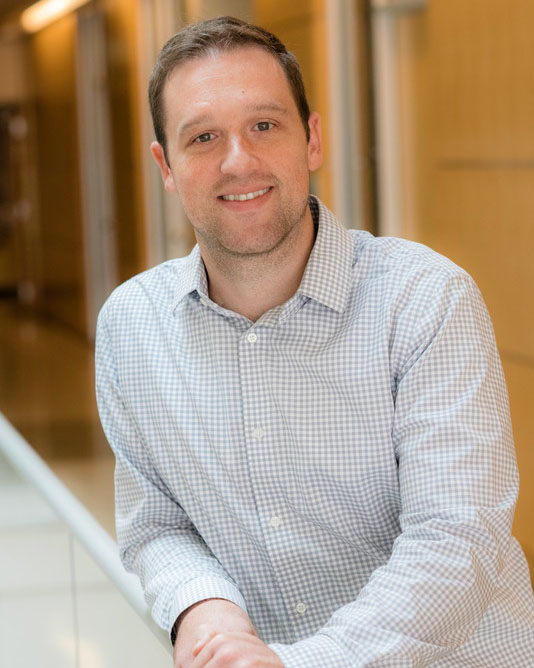 Benjamin Larimer, Ph.D.COVID-19 dollars elicit new findings
Benjamin Larimer, Ph.D.COVID-19 dollars elicit new findings
For Benjamin Larimer, Ph.D., assistant professor in the Department of Radiology, the opportunity to receive funding for COVID-19 research meant capitalizing on an existing technology.
On his study, “Development of a Rapid and Scalable COVID-19 Antibody Epitope Mapping Platform by Phage Display,” Larimer says his group used a tool previously employed for cancer studies. “It has significantly expanded the potential impact we can have by looking at biomarkers in a variety of new ways.”
The project resulted in new findings on how the immune system generates COVID-19 antibodies in patients, which led to a new antibody test that could provide an inexpensive, but quick way to track immunity. Larimer says his team is fortunate to have been accurate in projecting outcomes for the study.
“Our work resulted in a new patent being filed, and a UAB startup, P3 Diagnostics,” Larimer explains. “While the startup is still in its early stages, we hope that it will allow for translation of discoveries at UAB to make it into clinical applications.”
Larimer and his team have presented the study’s results to local, regional, national, and international news outlets and industry meetings, which has greatly increased exposure for the excellence in research at UAB.
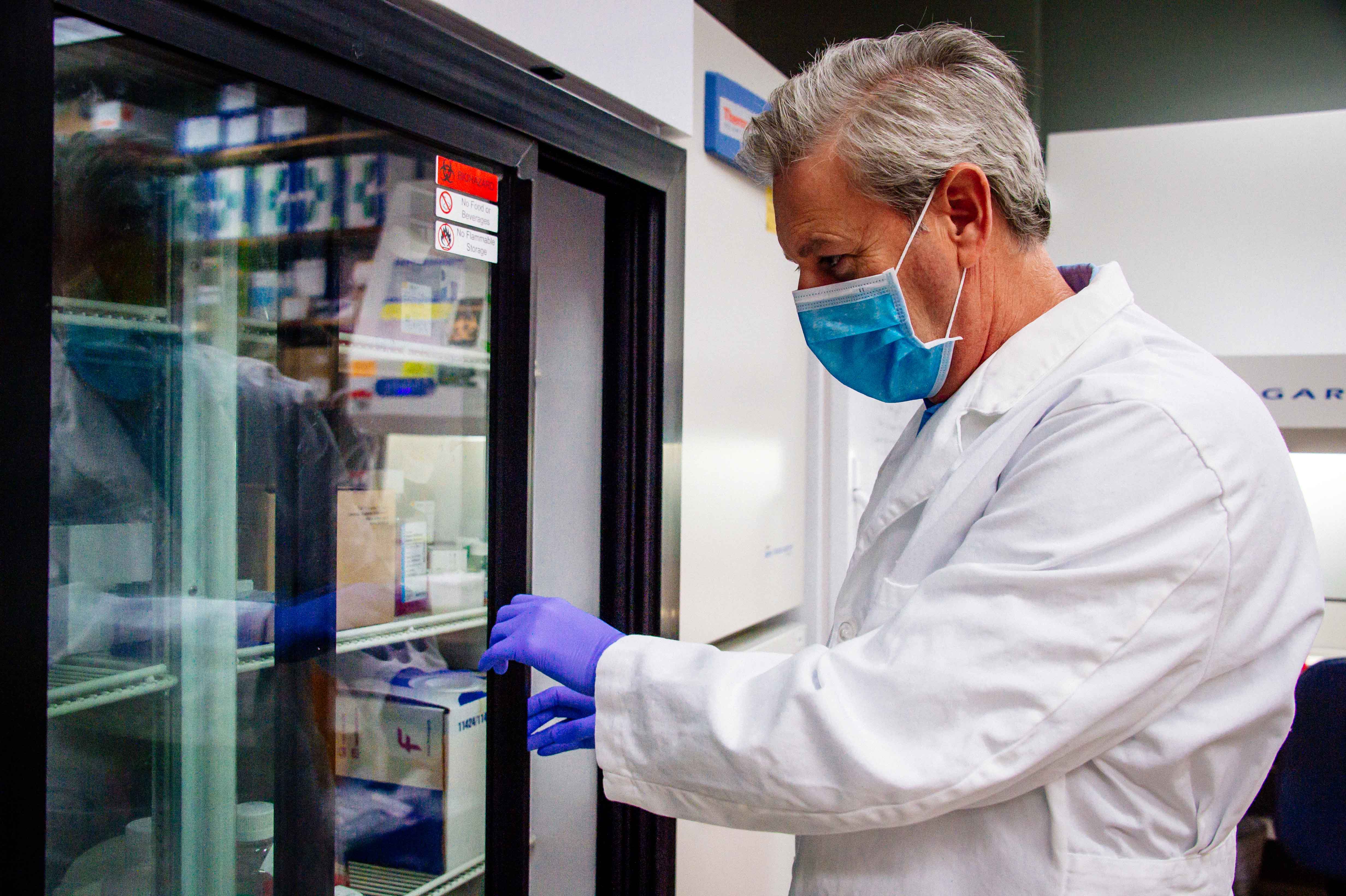 Kevin Harrod, Ph.D.Similarly, Kevin Harrod, Ph.D., Benjamin Monroe Carraway Endowed Chair and professor in the Department of Anesthesiology and Perioperative Medicine, is a research scientist who has dedicated his career to studying respiratory and emerging infections, as well as other SARS viruses.
Kevin Harrod, Ph.D.Similarly, Kevin Harrod, Ph.D., Benjamin Monroe Carraway Endowed Chair and professor in the Department of Anesthesiology and Perioperative Medicine, is a research scientist who has dedicated his career to studying respiratory and emerging infections, as well as other SARS viruses.
“The award allowed my laboratory to get started immediately without the concern of finding funding,” Harrod says.
As a result of the support provided by the Urgent COVID-19 Clinical Research and Laboratory Research Fund, Harrod’s team has found 18 drugs that have antiviral activity against SARS-CoV-2. “Many of these will be lead compounds in our drug discovery endeavors for the next year,” he says.
In addition to Larimer’s and Harrod’s studies, 12 other projects were funded by the Urgent COVID-19 Clinical Research and Laboratory Research Fund, many of which led to subsequent funding, high impact publications, filed patents, and new discoveries on SARS-CoV-2.
The COVID-19 Research Task Force’s rapid response
“Independent of these awards, I’m most proud of the COVID-19 Research Task Force,” says Benveniste. “It brought the research community together and has fostered much collaboration from research scientists from the SOM.”
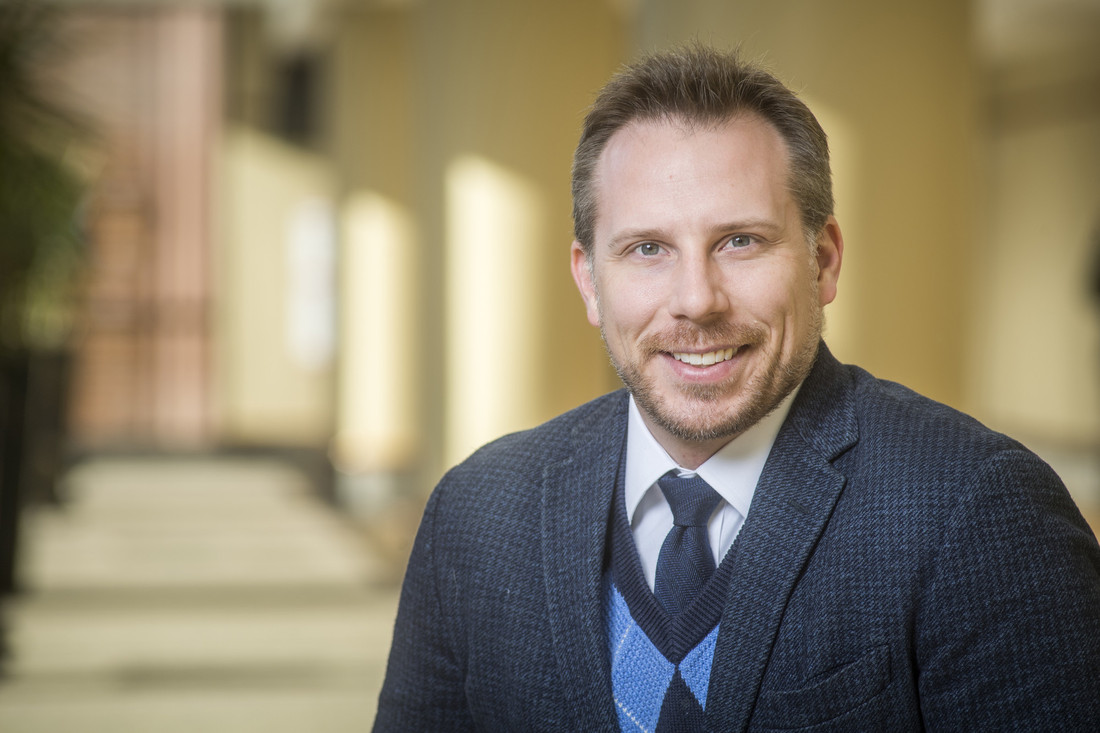 Matt Might, Ph.D.The SOM COVID-19 Research Task Force is responsible for laying the groundwork of COVID-19 research over the past year and building a foundation to help scientists succeed in their research.
Matt Might, Ph.D.The SOM COVID-19 Research Task Force is responsible for laying the groundwork of COVID-19 research over the past year and building a foundation to help scientists succeed in their research.
Benveniste says the COVID-19 Research Task Force has propelled excitement for research in the school and provided resources for labs. Plus, the school’s partnership with the Hugh Kaul PMI, led by Director Matt Might, Ph.D., has been instrumental in the success of the COVID-19 Research Task Force.
The task force has also disseminated information about research on a broad, more public level. Several researchers at UAB have been thwarted from the bench to the spotlight—debunking myths to media, hosting conferences open to the public, and collaborating in open virtual symposiums.
Science goes viral
On Oct. 28, 2020, the SOM and PMI assembled an event that highlighted SARS-CoV-2 research at UAB—the COVID-19 Research Symposium. Keynote speakers included Anthony Fauci, M.D., director of the National Institute of Allergy and Infectious Diseases, and Kathleen Neuzil, M.D., director of the Center for Vaccine Development, University of Maryland.
At the symposium, SOM researchers shared their work with over 2,000 live viewers. Among the audience were faculty and research colleagues from UAB, but also staff, students, and interested individuals from the Birmingham community.
The wide-ranging audience demographic illustrated a growing interest in basic sciences among the public. Benveniste remarks that “general interest in science from the broad public has greatly increased in the past year.”
Public health officials have played a momentous and historic role in keeping the public safe during COVID-19. Driven by what media is calling “the Fauci Effect,” the pandemic has prompted many who were already considering medical school to apply. On Fauci’s leadership, NPR writes: “Fauci said he sees the flood of medical school applicants as a sign that people are thinking about social justice—‘that you have responsibility not only to yourself, but as an integral part of society.” The Association of American Medical Colleges (AAMC) cites that medical school applications increased by 18% in 2020.
Benveniste adds that science has become much more accessible, generating educational and career-level interest from around the world.
Innovative facilities promote life-saving research
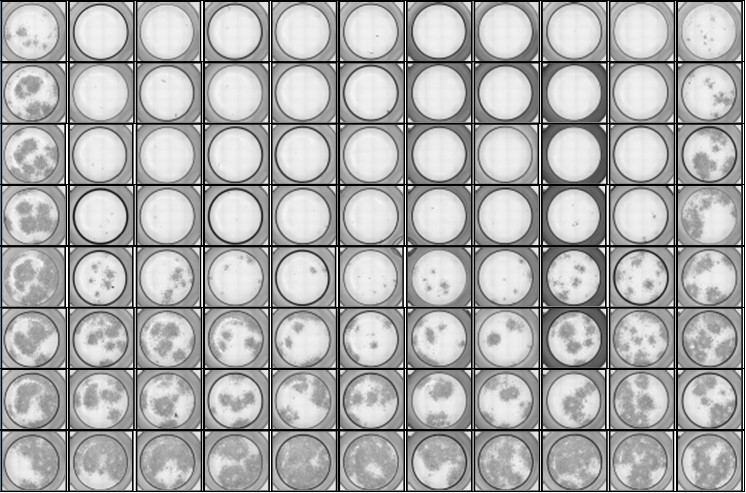 Microscopic image of drug screen studies in SEBLABAnother major factor contributing to how science has evolved in the past year is UAB’s world-class infrastructure.
Microscopic image of drug screen studies in SEBLABAnother major factor contributing to how science has evolved in the past year is UAB’s world-class infrastructure.
A large number of awardees from the Urgent COVID-19 Clinical Research and Laboratory Research Fund are able to work with the live virus in UAB’s Regional Biocontainment Laboratory (RBL).
In 2003, UAB was one of 13 NIH-awarded contracts to build Regional Biocontainment Laboratories across the country. RBLs support basic science critical to developing therapeutics, diagnostics, and vaccines for emerging infectious diseases, as well as developing biodefense for bioterrorism.
The RBL at UAB is called Southeastern Biosafety Laboratory Alabama Birmingham (SEBLAB). SEBLAB provides the research community at UAB with biocontainment space at biosafety levels 2 and 3 (BSL-2 and BSL-3). BSLs host dangerous viruses such as Ebola, Influenza, West Nile—and now—SARS-CoV-2.
Resources to build SEBLAB came right after September 11, 2001, when concerns of bioterrorism and anthrax were circulating. There was a competition for dollars nationwide and UAB was fortunate to receive one of the grants. The lab was completed in 2008, and was only used by a few groups until COVID-19.
Today, the lab is at full capacity.
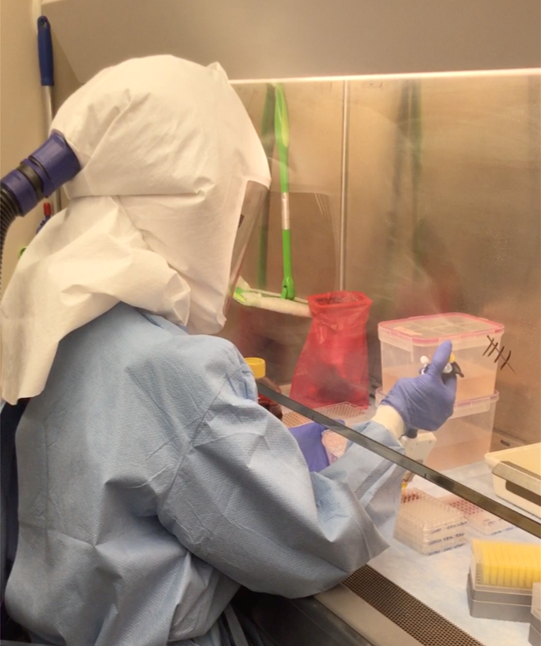 Jennifer Tipper, Ph.D., in SEBLABAnyone working with SARS-CoV-2 must work in a BSL-3 facility. “There are very stringent requirements of BSL-3s, like gowning up, how to enter spaces, and following compliance rules,” says Benveniste. “It’s very cumbersome—a hard way to perform research.”
Jennifer Tipper, Ph.D., in SEBLABAnyone working with SARS-CoV-2 must work in a BSL-3 facility. “There are very stringent requirements of BSL-3s, like gowning up, how to enter spaces, and following compliance rules,” says Benveniste. “It’s very cumbersome—a hard way to perform research.”
For some of the groups funded by the Urgent COVID-19 grant, it was their first time to operate and work in a BSL-3 facility.
Kevin Harrod, Ph.D., was first on the scene to help investigators prepare for SEBLAB work. “He helped several groups get compliant, complete their paperwork, and train on the policies of SEBLAB,” Benveniste explains.
Because of his specific scholarly and scientific interests, he was very familiar with SEBLAB prior to COVID-19. “I think without my BSL-3 laboratory experience, and the knowledge of coronavirus virology, it would have been a much steeper learning curve for investigators in the SOM to get started on studies utilizing the virus,” Harrod says.
“The SOM thanks Dr. Harrod for his tireless work preparing our research scientists to use SEBLAB and equipping them for success,” Benveniste conveys.
“Plus, Dr. Justin Roth, associate director of High Containment Labs and RO, was instrumental getting people trained to work in SEBLAB. We could not have done this without him,” she says.
The future of COVID-19 research
The future of COVID-19 research projects at UAB is sprawling with opportunity. Ample funding opportunities are available through the NIH for COVID-19 research.
“The COVID-19 urgent funding a year ago launched research and helped our investigators get preliminary data that they’ve used for subsequent grants,” Benveniste says. The SOM has received funding from NIH, the Birmingham business community, private donors, and more.
The SOM is profoundly grateful for the catalyst that philanthropy provided for research scientists during this unprecedented time. "Our community’s generosity has changed the course of the pandemic for our patients, the citizens of Birmingham, our state, and beyond," Benveniste says.
Plus, when it comes to the future of COVID-19 research, the collaboration at UAB is unlike anywhere else in the country. The interdisciplinary approach taken by departments, divisions, centers, and institutes across UAB has allowed for timely, unique, and effective COVID-19 discoveries.
Under the leadership of Benveniste, Might, Harrod, and so many other research scientists, history has been made within the school. New and progressive approaches to research are consistently being explored—and will continue to be explored.
Read more about COVID-19 research here, or re-watch the COVID-19 Research Symposium here.